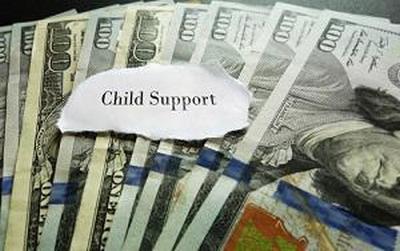Child Support Nonpayment in Illinois
 The purpose of child support is to help a child of unmarried or divorced parents enjoy the same quality of life as they would if their parents were together. If a noncustodial parent does not pay his or her court-ordered child support, the custodial parent can seek help from Illinois' Division of Child Support Services.
The purpose of child support is to help a child of unmarried or divorced parents enjoy the same quality of life as they would if their parents were together. If a noncustodial parent does not pay his or her court-ordered child support, the custodial parent can seek help from Illinois' Division of Child Support Services.
Not paying child support can result in wage garnishment, revocation of licenses, property liens, interception of tax refunds, and, in the most severe cases, criminal prosecution. If you are the primary caregiver to a child and the child’s other parent is not paying child support, read on to learn about your options under Illinois law.
Paternity Must Be Established Before Child Support Can Be Collected
Because there is seldom any question as to a child’s biological mother, most parentage issues stem from the father not establishing paternity. In Illinois, there are several ways that a father can establish paternity and become the child’s legal parent, including:
- Voluntary Acknowledgement of Parentage (VAP): Voluntary Acknowledgment of Paternity documents are usually available at the hospital and can be signed soon after a child is born. After parents sign a Voluntary Acknowledgment of Paternity, they are listed on the child’s birth certificate. From that moment forward, both parents are expected to fulfill their parental responsibilities as required by law. VAP forms should be used when parents agree on who the mother and father are.
- Court intervention: When parents do not agree about parentage, such as when a man is not sure he is a child’s biological father, the parents may need to take the matter to court. Sometimes, DNA tests are required in order to determine the biological father of a child.
- Department of Healthcare and Family Services (DHFS) hearing: A DHFS hearing may be used when an individual is receiving assistance and paternity must be established. This option deals with child support and parentage but parenting time (visitation) and parental responsibilities (custody) are not addressed.
What to Do If Your Child’s Other Parent Refuses to Pay Child Support
Children have a right to receive financial support from both parents. The federal Child Support Enforcement Act of 1984 allows district attorneys—or “State’s Attorneys” in Illinois—to help parents collect child support when the other parent refuses to pay. If your child’s other parent will not pay his or her court-ordered child support, contact an experienced family law attorney for help.
If you are a parent who cannot afford your child support payments, do not simply stop payment. Parents who cannot afford their court-ordered child support can file a “Petition to Modify Support,” with the local county court in order to seek lower payments.
Contact a Naperville Family Law Attorney
To learn more about Illinois child support laws, contact the experienced Wheaton, Illinois family law lawyers at Pesce Law Group, P.C. Call 630-352-2240 to schedule a free consultation today.
Sources:
http://dph.illinois.gov/topics-services/birth-death-other-records/birth-records/paternity
http://ilga.gov/legislation/ilcs/documents/075000050K510.htm











 630-352-2240
630-352-2240


